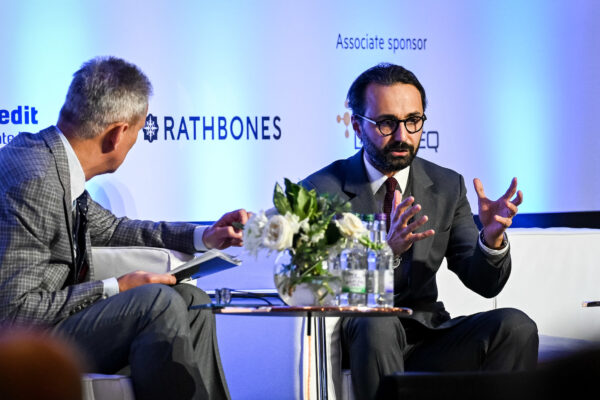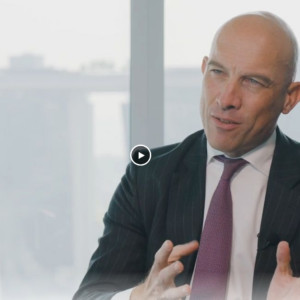
Speakers at the recent PWM and FT Global Wealth Management Summit highlighted the importance of succession planning, financial education and catering to women.
As families become wealthier, more global and increasingly blended, their needs become more complex. Their top priority is ensuring a smooth transition of both assets and values to future generations, but many do not plan their succession, do not have up to date wills in place, and do not even have conversations around wealth with their inheritors. Often they struggle to identify what their values and family goals are, spending much of their time accumulating wealth and little time preparing the next generation to receive it.
These key issues, the value of financial education, and how advisers can support wealthy families in their journey, while engaging the elusive next generation, were discussed at the recent PWM and FT Global Wealth Management Summit in London, which gathered industry leaders from Europe, the Americas, Asia and Africa.
Around the world, “one thing that is universally important to all families we serve is ‘what is their legacy going to be’? How are they going to leave their wealth to their kids and grandkids, as we are in the midst of the largest wealth transfer in history,” said Ida Liu, head of Citi Private Bank and keynote speaker at the two-day event. “That implies a lot of different shifts in behaviour.”
Ms Liu stressed the importance of listening to clients, and is proud of the bank’s global client advisory board, and specifically the millennial advisory board. “We want to hear directly from millennials, to understand what they want from their wealth managers,” she said.
Three key traits of the younger cohorts have so far emerged. Millennials “want everything digitally”. They also want to leverage global networks of like-minded people, who understand their viewpoints and want to share best practices, with educational programmes also important to them. Finally, increasingly over the past five years, they want to invest with purpose, generate impact, “and do good with their investments”. This is crucial for both the next gen and women clients, said Ms Liu.
New ways of thinking
Millennials are expected to be the receivers of the biggest wealth transfer in history but tend to be “infantilised economically by their parents”, with full adulthood not starting until they are 35, warned Eliza Filby, historian and generations expert, also a speaker at the conference.
“These young high net worth individuals feel insecure in their knowledge, lack in confidence when it comes to inheriting this money. And they do not just need emotional intelligence, but a teacher-mentor relationship with their advisers,” she said.

Ms Filby urged wealth advisers to approach younger generations without preconceived ideas, and not to “contort and fix millennials and Gen Z into that baby boomers’ straightjacket”.
The new generations are going to be working longer and more fluidly. They will have around 15 different employers over the course of their working life and five different careers, which will require continuous upskilling throughout their lives. Their families are changing too. An increasing number of women choose to be child free, while more and more couples decide not to marry.
As a result, financial relations between couples are evolving. “Fixed financial services through life do not make sense,” she said. While they are a generation of inheritors, their aspiration is to be entrepreneurs.
“Privilege in society, quite rightly, is viewed as a dirty word. More Gen Z want to start a business than a band, entrepreneurs in this society are lionized like rockstars used to be.”
But more and more millennials and Gen Z “are banking on an inheritance”, said Ms Filby, so it is paramount that parents do not make them too comfortable.
“It is important to teach the next generation the value of money, make it not too easy to access the pools of funds earlier on, ensure they invest their money well and do not fritter it away on pet projects, or compartmentalise their pet project section appropriately,” said Annabelle Bryde, head of UK Private Bank, Wealth Management UK and Crown Dependencies at Barclays.
Transparency about what wealth is also crucial. “I sat in client meetings where the next gen finds out what they have, and they're totally taken aback.” Wealth holders can engage children from quite an early age, giving them money to get experience in financial markets, or involve them in the family business. Philanthropy or having a special cause at the core of family's values is also a “great area” to engage children.
A school of thought in wealth psychology holds that children should not receive substantial funds until they are in their 30s or 40s, so that they can earn their way into adulthood, reported Tom McCullough, chairman and CEO, Northwood Family Office. This means having adult experiences such as getting married and owning a home, having a mortgage, bills, a job or any other ways through which “you earn and develop the muscles to be an adult”, he says, warning parents not to parent with their wallet.
Bridging the gap
Lack of financial education and preparation to inherit wealth can cause significant mental health issues, including anxiety, depression, lack of purpose and a sense of guilt, as well as isolation, especially when wealth is not expected. These issues have led an increasing number of wealth managers to partner with psychotherapists and wealth psychologists. But wealth advisers can play a pivotal role in bridging the gap between generations, helping clients solve generational conflicts, pass on family values, and provide financial education to children.
“Wealth advisers are not medical professionals, and if clients are experiencing a form of mental health we need to give them the space environment to get the necessary support,” said SG Kleinwort Hambros’ CEO Mouhammed Choukeir. “But we need to tune into the client’s challenges in life, with empathy,” he said, explaining his bank’s purpose is “to simplify life’s financial challenges”.

The firm has made “significant investments in non-technical training, which has been hugely beneficial to empower advisers and give them the ability to empathise with clients”, said Mr Choukeir.
Advisers’ ability to empathise and engage clients on difficult topics is crucial. Recent research by Scottish Widows shows 65 per cent of advisers find it difficult to discuss a client’s death with them.
While it may be uncomfortable, It is “incredibly important” that bankers and client advisers learn to talk about topics such as death, said Barclays’ Ms Bryde. The best way to teach them is “by bringing them into situations when they're still younger in their career to observe and see the best techniques”.
“I am a firm believer you can learn soft skills, up to a certain degree anyway,” she said. “Bankers and advisers just have to get over it and practice it. Like with everything, practice makes perfect.”
Advisers must help families make values-based decisions that help determine what families are going to do with their wealth, once all their lifestyle needs are taken care of. It is important to define that “North Star”, which shows where clients want to get with their family and purpose. “If you get that right, the rest falls into piece,” said Ms Bryde.
But are advisers able to tune in the wavelengths of millennials and their children, Gen Z and Gen A? These younger cohorts may be arguably the real beneficiaries of the wealth transfer, as grandparents increasingly skip a generation and become involved in the parenting of their children’s children.
Industry research shows that two-thirds of children fire their parent’s advisers on receiving their inheritance.
It is vital to involve the next generation in family discussions and create a relationship with them earlier on, said Marianna Mamou, head of Advice Beyond Investing at UBS Global Wealth Management. “As a wealth manager, you can start facilitating discussions both in terms of potentially defining together the family governance, strategy, values, but also importantly in regards to investment decisions.”
Through these, family members start reflecting on values, which creates bonds, but also understand the rationale behind some of these decisions. For instance, a benefactor may think long term and include illiquid investments such allocations to private markets, but the next generation should also believe in these strategies and keep them over the long term. The same goes for collectibles.
Gender wealth transfer
The great wealth transfer is first of all a gender wealth transfer. Catering to women better is vital for both private banks and the broader society, said Meena Flynn, global co-head of global private wealth management at Goldman Sachs.
In the US, women will inherit up to 70 per cent of the wealth, according to McKinsey, meaning they could possess and control two-thirds of the country’s wealth by 2030. They are also making more money, adding about $5tn to the global economy every year, according to BCG. They are much more involved in wealth discussions than in the past.
Having longer lifespans, women tend to outlive their husbands, but research shows within a year of their spouse’s death, 70 per cent of women switch their wealth adviser, having been excluded from client adviser dialogues.
Awareness on the importance of focusing on wealth management for women has grown in recent years, and “the industry has made a good amount of progress”, said Ms Flynn. “But more needs to be done.”
While the “misnomer” in the industry is that women are more risk averse, they are just more risk aware, she explained. “Women want advisers they can trust, who offer a safe space for them,” to share concerns and aspirations, making them feel comfortable asking questions, irrespective of their financial knowledge. Advisers need to have “outstanding financial intelligence as well as emotional intelligence”, and being able to “think through with the client what their goals are and how to achieve them”.
While the industry is still male-dominated, with only 15 per cent advisers in the US females, more women advisers, and greater diversification in the workforce in general, will also contribute to better service women and support their families across generations.
Women tend to save more and invest less than men, and financial education is key to improve the gender investment gap, said Ms Flynn.
Women – “but also everyone at all levels of wealth” – should be educated about the value of compounding, and what the impact of being too conservative or aggressive may be on the goal of preserving wealth across generations. Scenario analysis and stress testing portfolios are particularly useful.
“Women have a greater focus on investment strategies consistent with their values, and use their capital to accentuate their value based perspectives,” she explained. Through philanthropic, social, as well as consumer capital – the way money is spent on a day to day basis – “women want to give back to their communities, their companies, invest in diverse-led businesses, and set their family up for success”.
“Data shows there's going to be more money in the hands of women,” said Ms Flynn. “And to the extent your financial organisation is catering to that, it is going to do better, and the broader society is going to do better too.”





